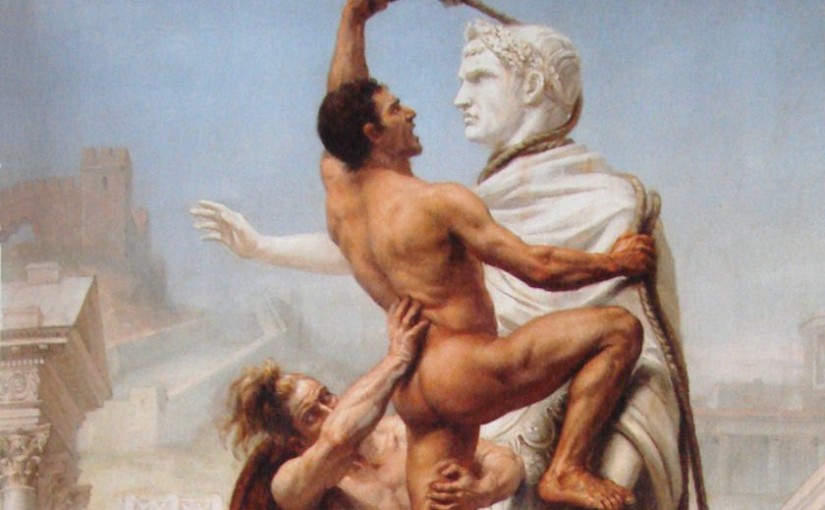The European far right hath spoken: We don’t want to take in the refugees. We’re not being racist; we’re just protecting our own existence.
But who hath spoken? Most Europeans today are descendants of the “barbarians” who once ruined the Roman Empire that spanned across the continent.
They came from as far as Central Asia. Whether Germanic tribes and Iranian allies, Slavic folks, or Turkic nomads — they invaded to leave their mark in every corner of Europe.
Unlike the Syrian refugees today, the barbarians were armed. They killed and pillaged everywhere and everything they could find. Goths sacked Rome, Vandals razed Hispania, Anglo-Saxons drove out the Celts in Britain, and Slavs terrorized Illyria, my native land. Colonists subdued the locals and equally fought one another one.
When invasions subsided, the surviving Romans embraced their slayers. The indigenous people were to live side-by-side a population that now settled in their lands.
Colonists brought a new reality that one had to accept, and they evoked the compassion of the natives, too. Armed men knew nothing but force and violence. But not all barbarians were armed and wicked men.
The barbarians, after all, were humans worthy of peace and dignity. The natives welcomed them into what was left of civilization.
A bishop of indigenous descent translated the Bible for the Goths who had no literature of their own. A Roman missionary baptized the king of Kent and inspired him to write the first English law. Today, nations as distant as Mongolia or the Aleuts in Alaska use the Cyrillic alphabet, named after Saint Cyril who preached Christianity to medieval Slavs.
The newcomers ruined the Roman Empire, yet they inherited it and revived it.
Some historians defend the barbarians. The great migrations didn’t uncrown Rome, they say. The empire was already in decay, and would have collapsed on its own. Even Saint Augustine, in his City of God, imputed the demise to a corrupt Roman society. The northern and eastern peoples pushed southward and westward as they fled a harsh climate, scarce resources, or war and persecution in their own territories.
But one thing is for certain: Rome fell apart and the continent saw tough times from around year 400 of the common era. Europe was born again only centuries later. While always fragile and complicated at heart, she became stronger and greater with the former barbarians at her forefront.
Europe could in theory collapse again, and the collapse could happen now, just as thousands of refugees flood the continent. But would they be the ones to blame?
Correlation doesn’t mean causation. And the refugees’ being there won’t mean they did it. They would be mere bystanders in the death scene of what a disillusioned Franciscan friar once called an “aging whore.”
Because if Europe were to die, she would die of her own sins and of the domestic disease the far right has failed to cure. But the continent has strength and hope to redeem itself. Europe will show her virtues in helping the refugees and making them love her.
Some Roman emperors built walls to ward off invaders. The walls fell, so did the emperors. The people embraced the barbarians, and the barbarians found a sense of belonging in the civilization they almost destroyed.
We’re more fortunate today. The refugees are not armed. They’re worn out, but not barbarians. They come from where civilization came when it poured onto Europe.
And we’re even more fortunate today. Europe — albeit a mess — is indeed far better, stronger, and juster than the Roman (or any other) empire ever was.
Shkurtegëza për këtë postim: http://pli.si/1PiTq1C


